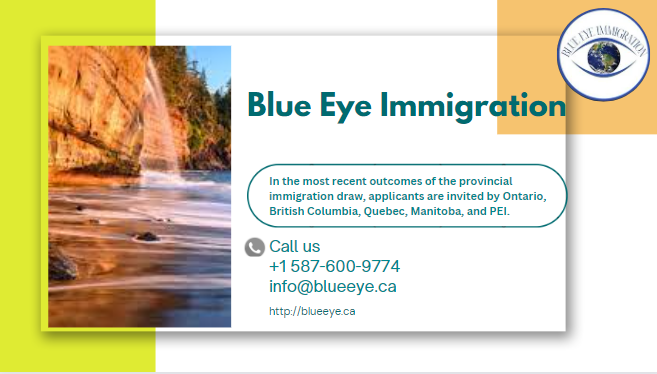Candidates are encouraged to apply through provincial immigration programs in five Canadian provinces.
Provincial Nominee Programs are in place in every province and territory with the exception of Nunavut and Quebec (PNP). Through these initiatives, provincial governments can propose the individuals they believe have the most potential to become integrated into the local economy. A candidate’s application for permanent residence is significantly strengthened by a provincial nomination.
Provincial governments and Immigration, Refugees and Citizenship Canada (IRCC) share immigration-related responsibilities. Recently, Immigration Minister Marc Miller convened with his provincial colleagues to deliberate on common agenda items. These twice-yearly sessions provide IRCC with information on how to effectively use immigration as a tool to support the economic prosperity of Canada’s provinces.
Reducing duplication in federal-provincial economic class immigration programs, expediting processing timeframes, lowering obstacles, and simplifying the acceptance of foreign credentials were some of the subjects discussed during the conference on November 18. They also talked about examining how governments may cooperate to alleviate the strain on social services, housing, and infrastructure as well as coordinating work permits with the demands of the labor market on a provincial and territorial level.
Quebec and the federal government have a separate agreement that allows the province complete control over the choice of its economic immigrants. Nonetheless, for those who are granted a Quebec Selection Certificate, the IRCC has the last say on their permanent residency status.
Results of provincial immigration, November 25–December 1.
The Ontario
On November 30, Ontario hosted a lottery for the Express Entry Human Capital Priorities stream.
1,052 Express Entry applicants in healthcare vocations who scored between 404 and 430 on the Comprehensive Ranking System (CRS) were asked by the province to apply for provincial nomination.
Candidates who meet the requirements must be able to prove that they plan to remain in Ontario after they are granted permanent residency status. The province verifies a candidate’s connections to the province through a variety of means, such as work experience (or the pursuit of work in the province), property ownership or rental, and professional and interpersonal connections.
British Columbia
On November 28, 185 BC PNP candidates were invited by British Columbia in four drawings.
The biggest was a general draw that included 80 applicants from the entry-level, semi-skilled, skilled worker, and international graduate streams. The minimum scores were between 94 and 116.
- The target drawings were the final three.
- 49 Assistants and Teachers in Early Childhood with a minimum score of 60;
- 27 applicants for construction jobs who have at least a 75; and
- 29 applicants with at least a 60 in healthcare vocations
On November 21, the province also conducted four lotteries for applicants who were international graduates and skilled workers. The province welcomed 93 applicants for IT jobs, requiring a minimum score of 94, in addition to:
- 27 Assistants and Teachers of Young Children who have at least a 60;
- 24 applicants with a minimum score of 75 who work in construction; and
- 17 candidates from Quebec who work in healthcare
Quebec welcomed 1210 applicants to apply for selection for permanent status on November 16. A minimum score of 609 was necessary for individuals to be qualified, and no specific vocations were targeted.
According to the Échelle québécoise des niveaux de compétence en français, or its equivalent, all applicants had to demonstrate oral competence in French at least at level 7;
Manitoba
On November 30, Manitoba held a drawing to invite candidates in Manitoba Provincial Nominee Program.
Through the Skilled Worker stream, the province welcomed 148 individuals who could provide proof of a close family living in Manitoba. Additionally, a minimum score of 609 was necessary.
This is the year’s first draw of that kind.
Candidates for this stream had to be able to provide documentation indicating a close relative—a parent, grandparent, sibling, niece, nephew, aunt, or uncle—had been residing in the province for a minimum of one year in order to be eligible.
Additionally, 38 applicants with a minimum score of 720 for Skilled Workers Overseas and 82 candidates in the International Education Stream were invited by Manitoba.
Island of Prince Edward
69 candidates were invited by PEI PNP on November 30th via the PEI PNP’s Labour and Express Entry streams.
Candidates with jobs in the manufacturing, food processing, healthcare, or construction industries received invitations.
Through this stream, the province has welcomed 2,528 candidates in the last 12 months.
